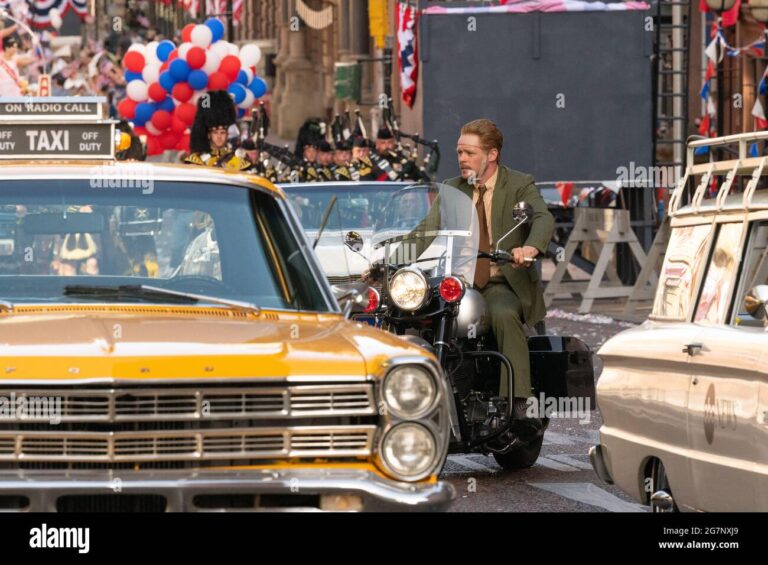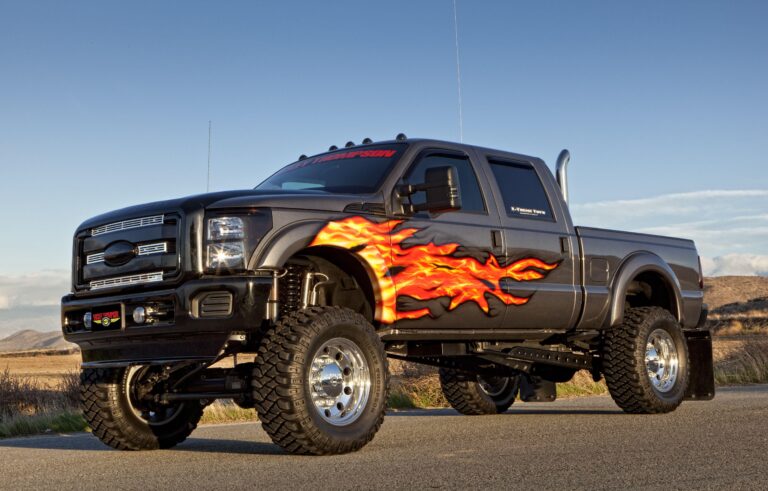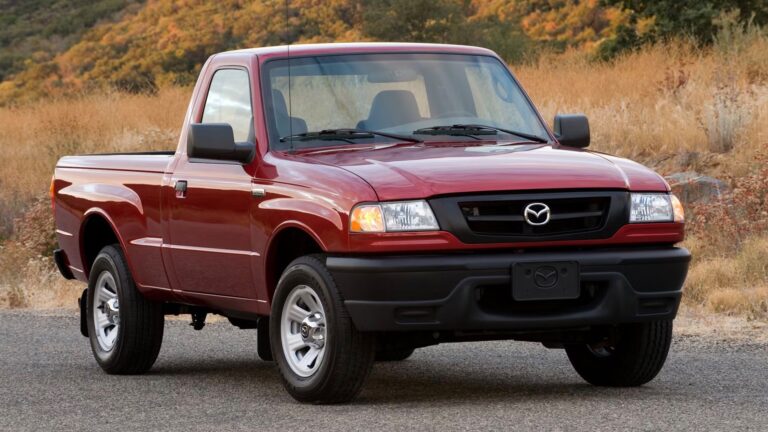The Road Ahead: Demystifying the Price of Trailers from U-Haul
The Road Ahead: Demystifying the Price of Trailers from U-Haul cars.truckstrend.com
Moving, hauling, or transporting goods often brings U-Haul to mind, a household name synonymous with DIY logistics. Central to their extensive fleet are their versatile trailers, offering a cost-effective and flexible solution for a myriad of needs. However, the question, "What is the price of trailers from U-Haul?" isn’t as straightforward as a single number. It’s a dynamic figure influenced by a range of factors, making understanding their pricing model crucial for anyone planning to rent.
This comprehensive guide aims to demystify U-Haul trailer pricing, providing a clear roadmap to understanding the costs involved. We’ll explore the various types of trailers, the factors that dictate their rental fees, offer practical advice for cost optimization, and equip you with the knowledge to make an informed decision for your next hauling project.
The Road Ahead: Demystifying the Price of Trailers from U-Haul
Understanding U-Haul’s Trailer Pricing Model: The Core Fundamentals
U-Haul’s pricing for trailers is not fixed but rather a fluid system influenced by several key variables. Unlike their trucks, which often have mileage charges, U-Haul trailers typically come with a flat daily or rental period rate. However, this rate fluctuates significantly based on the following:
- Trailer Type and Size: Naturally, larger and more specialized trailers (like auto transports) cost more than smaller utility or cargo trailers.
- Rental Duration: Whether you need the trailer for a few hours, a day, a week, or longer will impact the total cost. U-Haul often has daily rates, but for longer periods, discounts might apply, or a cumulative daily rate will be charged.
- Pick-up and Drop-off Location (In-Town vs. One-Way): This is arguably the most significant cost differentiator.
- In-Town Rental: You pick up and drop off the trailer at the same U-Haul location. These rentals are generally much cheaper as they ensure the trailer returns to its original inventory.
- One-Way Rental: You pick up the trailer at one U-Haul location and drop it off at another in a different city or state. These are significantly more expensive because U-Haul incurs the cost of repositioning the trailer.
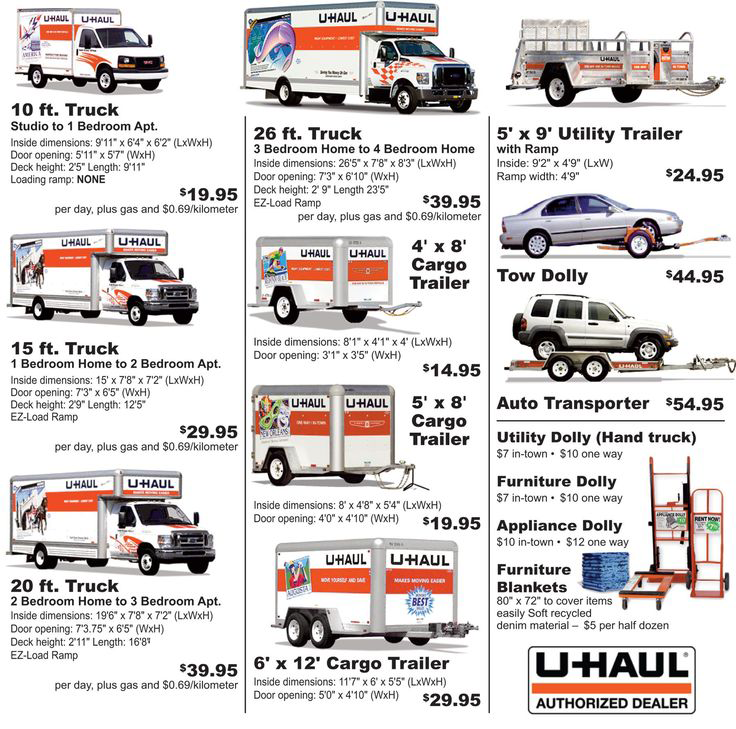
- Availability and Demand: During peak moving seasons (summer months, end of the month, holidays), prices can be higher due to increased demand. Similarly, if a specific trailer type is in short supply at a given location, its price might temporarily increase.
- Geographic Location: Prices can vary slightly from city to city or state to state, reflecting local market conditions, operating costs, and taxes.
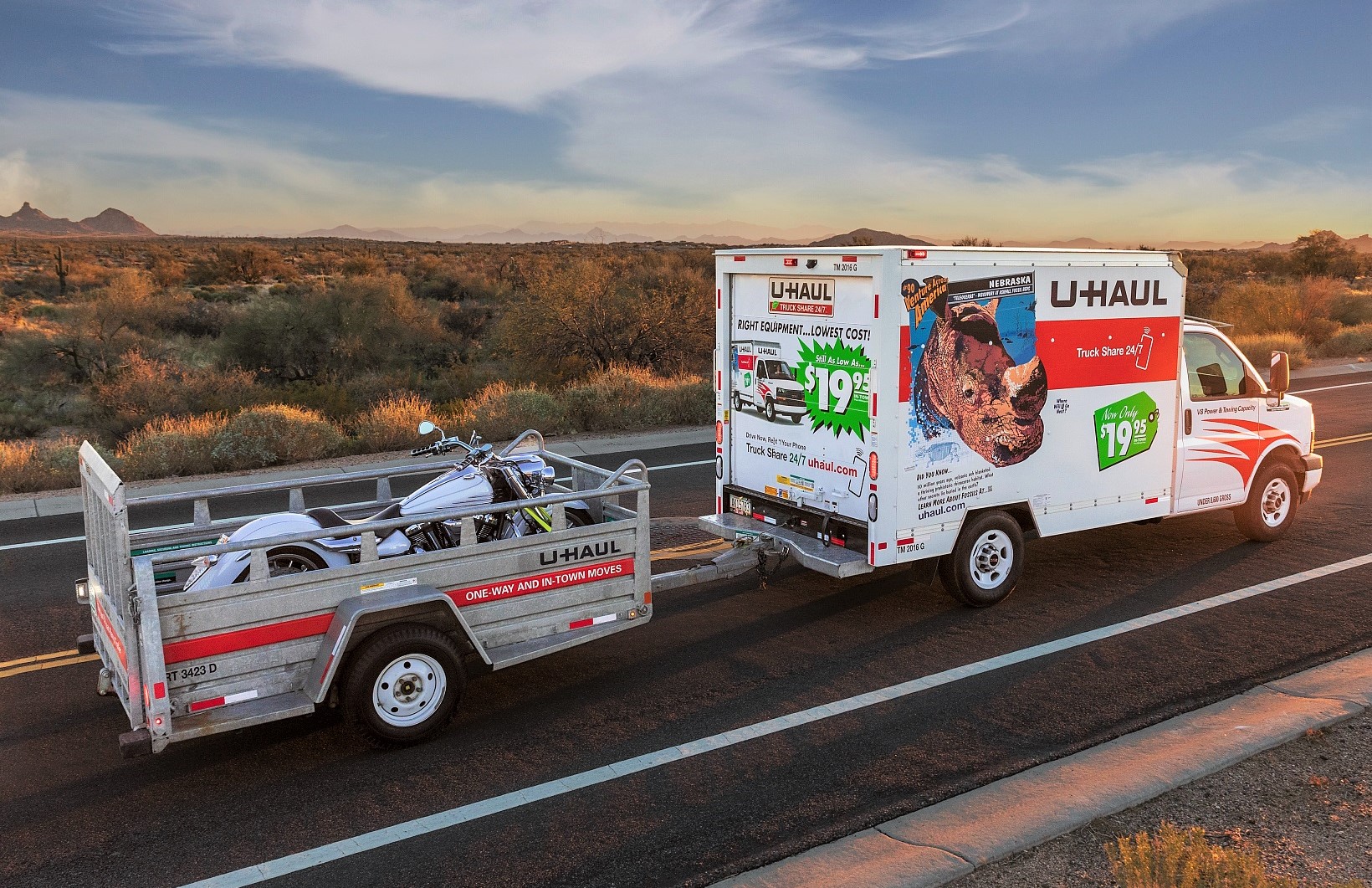
By understanding these fundamental factors, you can begin to anticipate the potential costs associated with your U-Haul trailer rental.
A Closer Look: Types of U-Haul Trailers and Their Typical Price Ranges
U-Haul offers three primary categories of trailers, each designed for specific hauling needs. Their pricing reflects their capacity and specialized function.
1. Cargo Trailers (Enclosed)
These trailers are fully enclosed, providing protection for your belongings from weather and road debris. They are ideal for moving household goods, furniture, boxes, and anything that needs to stay dry and secure.

- 4×8 Cargo Trailer: The smallest enclosed option, perfect for studio apartments, small furniture, or just a few boxes.
- Typical In-Town Daily Rate: $14 – $19
- 5×8 Cargo Trailer: A popular choice for 1-bedroom apartments or larger loads from a studio.
- Typical In-Town Daily Rate: $19 – $24
- 5×10 Cargo Trailer: Suitable for 1-2 bedroom apartments or larger household items.
- Typical In-Town Daily Rate: $24 – $29
- 6×12 Cargo Trailer: The largest enclosed trailer, ideal for 2-3 bedroom homes or substantial loads.
- Typical In-Town Daily Rate: $29 – $39
2. Utility Trailers (Open)
Utility trailers are open, flatbed trailers, making them suitable for hauling items that are weather-resistant, oddly shaped, or require open access for loading/unloading. Think landscaping materials, ATVs, motorcycles, or construction supplies.
- 4×7 Utility Trailer: Small and nimble, great for light hauling like lawn equipment, small ATVs, or bagged materials.
- Typical In-Town Daily Rate: $14 – $19
- 5×8 Utility Trailer: A versatile option for motorcycles, lumber, or moderate landscaping projects.
- Typical In-Town Daily Rate: $19 – $24
- 6×12 Utility Trailer (with Ramp): The largest utility trailer, often equipped with a ramp for easy loading of large equipment, multiple ATVs, or significant construction materials.
- Typical In-Town Daily Rate: $29 – $39
3. Car Haulers / Auto Transports
Designed specifically for transporting vehicles, these trailers come in two main types:
- Tow Dolly: A two-wheel trailer that lifts the front wheels of your vehicle off the ground, with the rear wheels remaining on the road. Best for front-wheel drive cars.
- Typical In-Town Daily Rate: $49 – $69
- Auto Transport: A full, four-wheel trailer that lifts the entire vehicle off the ground. Ideal for all types of vehicles, including all-wheel drive, classic cars, or long-distance moves.
- Typical In-Town Daily Rate: $59 – $89
Disclaimer on Prices: The prices listed above are approximate daily in-town rates. One-way rental prices for all trailer types will be significantly higher, often ranging from $100 to several hundred dollars depending on the distance and demand. Always obtain a precise quote for your specific needs.
Smart Saving: Important Considerations & Cost-Cutting Tips
Renting a U-Haul trailer can be cost-effective, but being strategic about your rental can save you even more.
- In-Town vs. One-Way: Choose Wisely: If your move or hauling project allows, always opt for an in-town rental. The cost difference between picking up and dropping off at the same location versus different locations can be several hundred dollars. Only choose one-way if absolutely necessary for a long-distance move.
- Book in Advance: Especially during peak seasons (summer, weekends, holidays), booking your trailer several weeks or even months in advance can secure better rates and ensure availability. Last-minute rentals might be more expensive or simply unavailable.
- Be Flexible with Dates: If your schedule allows, consider renting during off-peak times, such as weekdays or non-holiday periods. Prices tend to be lower when demand is reduced.
- Accurately Assess Your Needs: Don’t rent a trailer that’s too big or too small. A too-small trailer means multiple trips (more fuel, more time), while a too-large trailer means unnecessary rental costs and potentially harder towing. Use U-Haul’s online tools or speak to a representative to determine the right size.
- Verify Your Towing Vehicle: Before you even consider a trailer, ensure your vehicle is capable of towing it. Check your vehicle’s Gross Vehicle Weight Rating (GVWR), Gross Combined Weight Rating (GCWR), and hitch class. U-Haul will verify this when you book. If your vehicle isn’t suitable, you might need to rent a U-Haul truck, which changes the cost dynamic entirely.
- Understand Additional Costs:
- Hitch and Wiring: If your vehicle doesn’t have a hitch or proper wiring, U-Haul offers installation services, but these come at an additional cost (often $200-$400+). Factor this in if you’re a first-time tower.
- Insurance (Safenow/Safetow): U-Haul offers supplemental coverage plans. While your personal auto insurance might cover some aspects, it’s crucial to check your policy. Safenow/Safetow can provide peace of mind by covering damage to the trailer or your cargo. Factor in an additional $8-$20 per day for these plans.
- Moving Supplies: Moving blankets, dollies, and other supplies are extra. Consider buying or borrowing these if you need them to save on rental costs.
- Fuel Efficiency: Remember that towing a trailer significantly impacts your towing vehicle’s fuel economy. Larger and heavier trailers will reduce MPG more. Factor in fuel costs when planning your budget.
How to Get a Quote and Book a U-Haul Trailer
U-Haul makes it relatively easy to get a quote and reserve a trailer, primarily through their website.
- Visit the U-Haul Website (Uhaul.com): This is the most common and convenient method.
- Enter Your Details: You’ll typically need to input:
- Pick-up location (zip code or city/state).
- Drop-off location (if it’s a one-way rental).
- Desired pick-up date and time.
- Approximate drop-off date and time.
- The type of trailer you’re interested in (or let their system recommend one based on what you’re moving).
- Provide Towing Vehicle Information: You’ll be prompted to enter your towing vehicle’s year, make, model, and whether it has a hitch and proper wiring. U-Haul’s system will verify if your vehicle is compatible with the chosen trailer.
- Review Your Quote: The website will generate a detailed quote, including the rental cost, estimated taxes, and any recommended additional services or products. Pay close attention to the "In-Town" or "One-Way" designation.
- Reserve Your Trailer: If the quote meets your expectations, you can proceed with the reservation. You’ll typically pay a reservation fee or the full amount upfront, depending on the terms.
- Confirm and Prepare: You’ll receive a confirmation email. On the day of pick-up, ensure your towing vehicle is ready, including proper tire pressure, working lights, and a secure hitch connection.
You can also get a quote and book over the phone by calling U-Haul’s reservation line or by visiting a local U-Haul center in person.
Comprehensive Price Table: U-Haul Trailer Estimates
Please remember that these are estimated typical daily in-town rates and are subject to change based on location, availability, duration, and whether it’s an in-town or one-way rental. One-way rentals will be substantially higher.
| Trailer Type | Size (Feet) | Typical In-Town Daily Rate Range | Common Use Case | Features (Common) |
|---|---|---|---|---|
| Cargo Trailer | 4×8 | $14 – $19 | Small moves, boxes, dormitory items | Enclosed, lightweight, weather-proof |
| Cargo Trailer | 5×8 | $19 – $24 | 1-bedroom apartments, furniture | Enclosed, weather-proof, ramp often |
| Cargo Trailer | 5×10 | $24 – $29 | 1-2 bedroom moves, larger furniture | Enclosed, weather-proof, ramp often |
| Cargo Trailer | 6×12 | $29 – $39 | 2-3 bedroom moves, large appliances | Enclosed, weather-proof, ramp often |
| Utility Trailer | 4×7 | $14 – $19 | Small landscaping, ATVs, bagged materials | Open, low sides |
| Utility Trailer | 5×8 | $19 – $24 | Motorcycles, lumber, moderate landscaping | Open, low sides |
| Utility Trailer | 6×12 | $29 – $39 | Large landscaping, ATVs, construction materials | Open, ramp often |
| Tow Dolly | N/A | $49 – $69 | Transporting front-wheel drive vehicles | 2-wheel lift, vehicle rear wheels on ground |
| Auto Transport | N/A | $59 – $89 | Transporting all vehicle types (AWD, RWD) | 4-wheel flatbed, vehicle fully off ground |
Note: One-way rental prices can be 3x-10x higher than the listed in-town daily rates, varying greatly by distance and route. Always get an exact quote from U-Haul for your specific needs.
Frequently Asked Questions (FAQ) about U-Haul Trailer Prices
Q1: Do I need a special driver’s license to tow a U-Haul trailer?
A1: In most U.S. states and Canadian provinces, you do not need a special commercial driver’s license (CDL) to tow a U-Haul trailer for personal use, as long as the combined weight of your vehicle and the loaded trailer is within legal limits for a standard driver’s license. However, always check your local Department of Motor Vehicles (DMV) regulations.
Q2: What if my car doesn’t have a hitch or proper wiring?
A2: U-Haul offers hitch installation and wiring services at their locations. This is an additional cost (typically a few hundred dollars) that needs to be factored into your budget if your vehicle isn’t already equipped.
Q3: Is insurance required for U-Haul trailers?
A3: While U-Haul’s Safenow/Safetow coverage is optional, it is highly recommended. Your personal auto insurance policy may cover liability for the trailer, but often does not cover damage to the U-Haul trailer itself or your cargo. It’s crucial to check with your personal insurance provider to understand your coverage limits before declining U-Haul’s options.
Q4: Can I pick up a trailer in one city and drop it off in another?
A4: Yes, this is known as a "one-way rental." While convenient for long-distance moves, one-way rentals are significantly more expensive than "in-town" rentals where you pick up and drop off at the same location.
Q5: How much does an empty U-Haul trailer weigh?
A5: The empty weight varies by trailer type and size. For example, a 4×8 cargo trailer might weigh around 850 lbs, while a 6×12 cargo trailer could be around 1,920 lbs. Auto transports are heavier, often over 2,000 lbs. You can find the exact empty weight on U-Haul’s website for each trailer model. This weight counts towards your towing vehicle’s capacity.
Q6: What’s the cheapest U-Haul trailer to rent?
A6: Generally, the 4×8 cargo trailer or the 4×7 utility trailer rented "in-town" for a single day will be the cheapest options, typically ranging from $14-$19.
Q7: Can I rent a U-Haul trailer without renting a U-Haul truck?
A7: Yes, absolutely. As long as your personal vehicle meets U-Haul’s towing requirements (proper hitch, wiring, and towing capacity), you can rent a trailer independently.
Q8: Are there mileage fees for U-Haul trailers?
A8: No, U-Haul trailers typically do not have mileage fees. Their rental cost is a flat daily or rental period rate, unlike U-Haul trucks which often include a base mileage and then charge per additional mile.
Conclusion: Planning is Key to Affordable Hauling
The price of trailers from U-Haul is not a static figure, but rather a flexible calculation based on your specific needs, the type of trailer, the rental duration, and crucially, your pick-up and drop-off locations. By understanding these variables and utilizing the tips provided, you can navigate U-Haul’s pricing structure effectively.
Whether you’re moving across the country or just across town, U-Haul trailers offer an accessible and often economical solution. The key to a smooth and affordable experience lies in thorough planning, accurate assessment of your needs, and smart booking practices. With the right information, you can confidently hit the road, knowing you’ve secured the best possible price for your hauling adventure.

